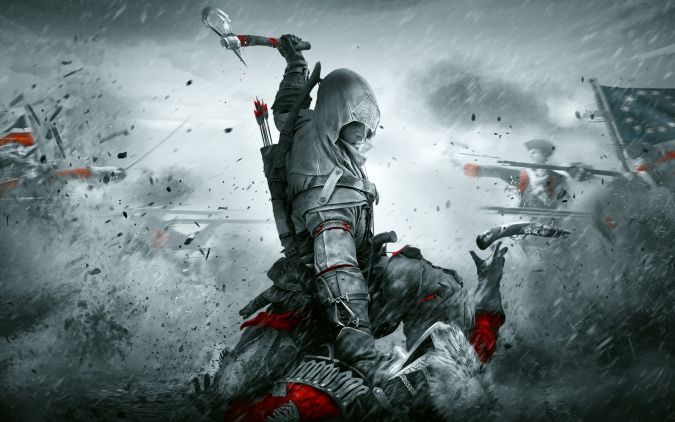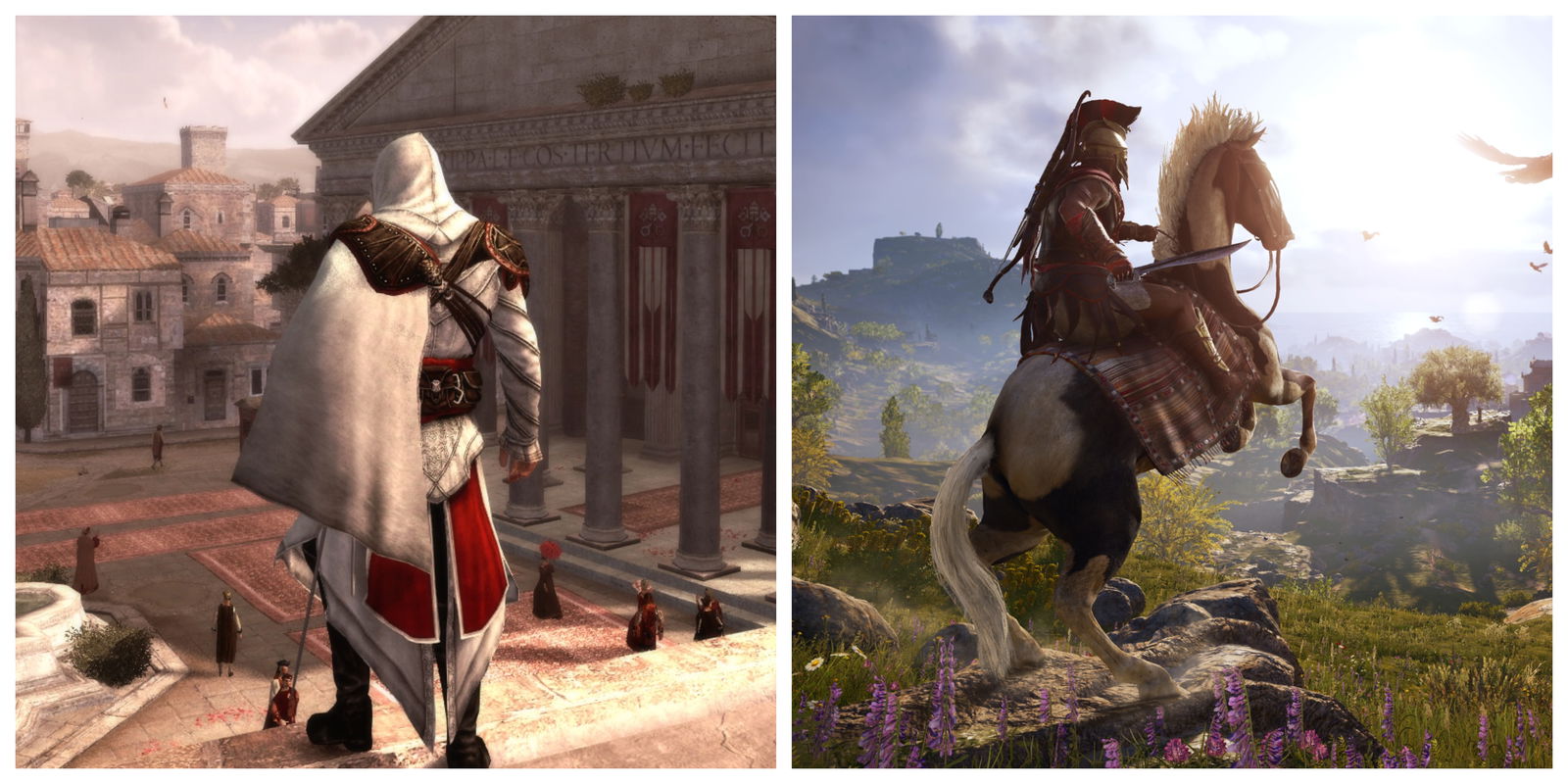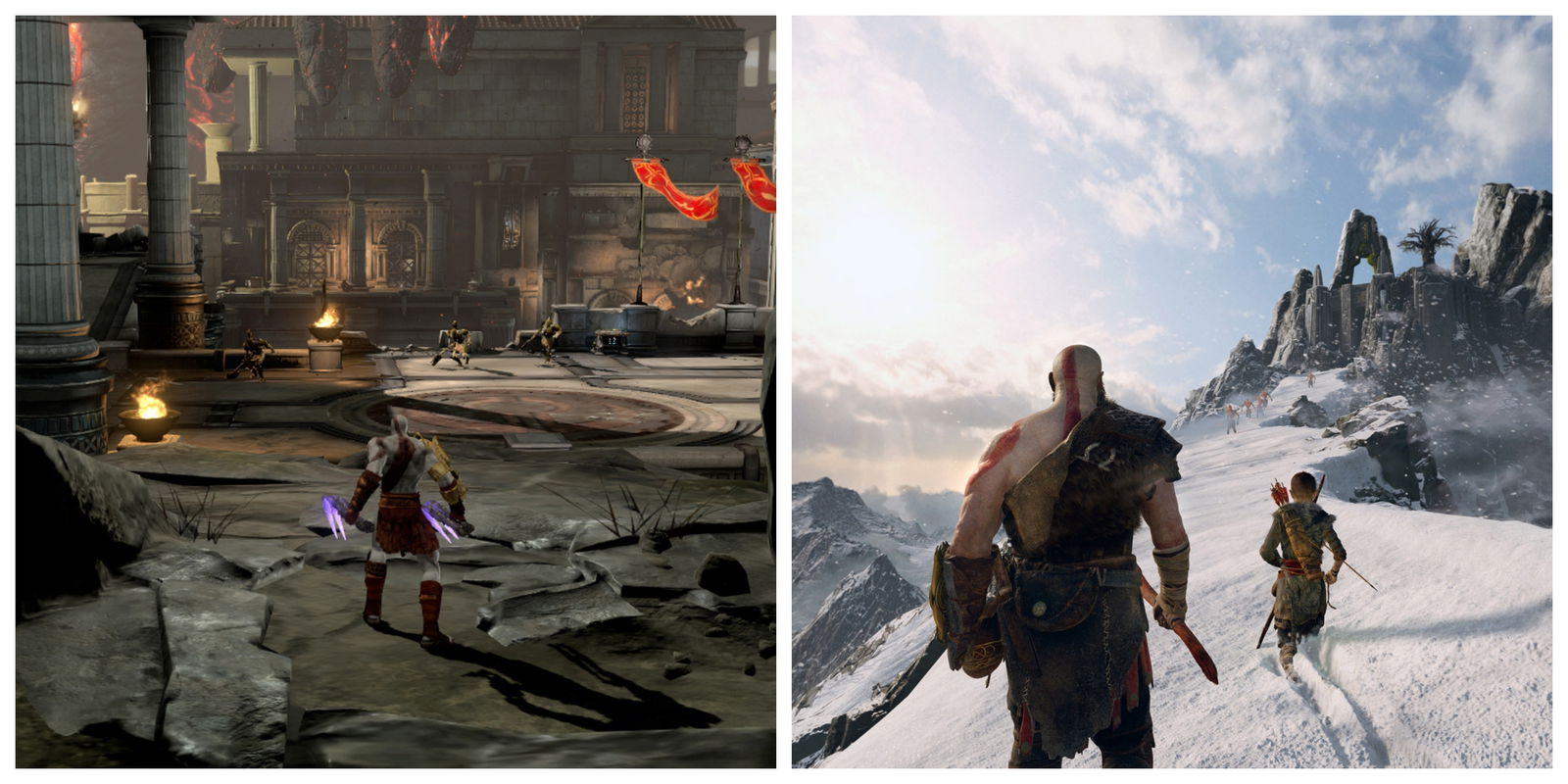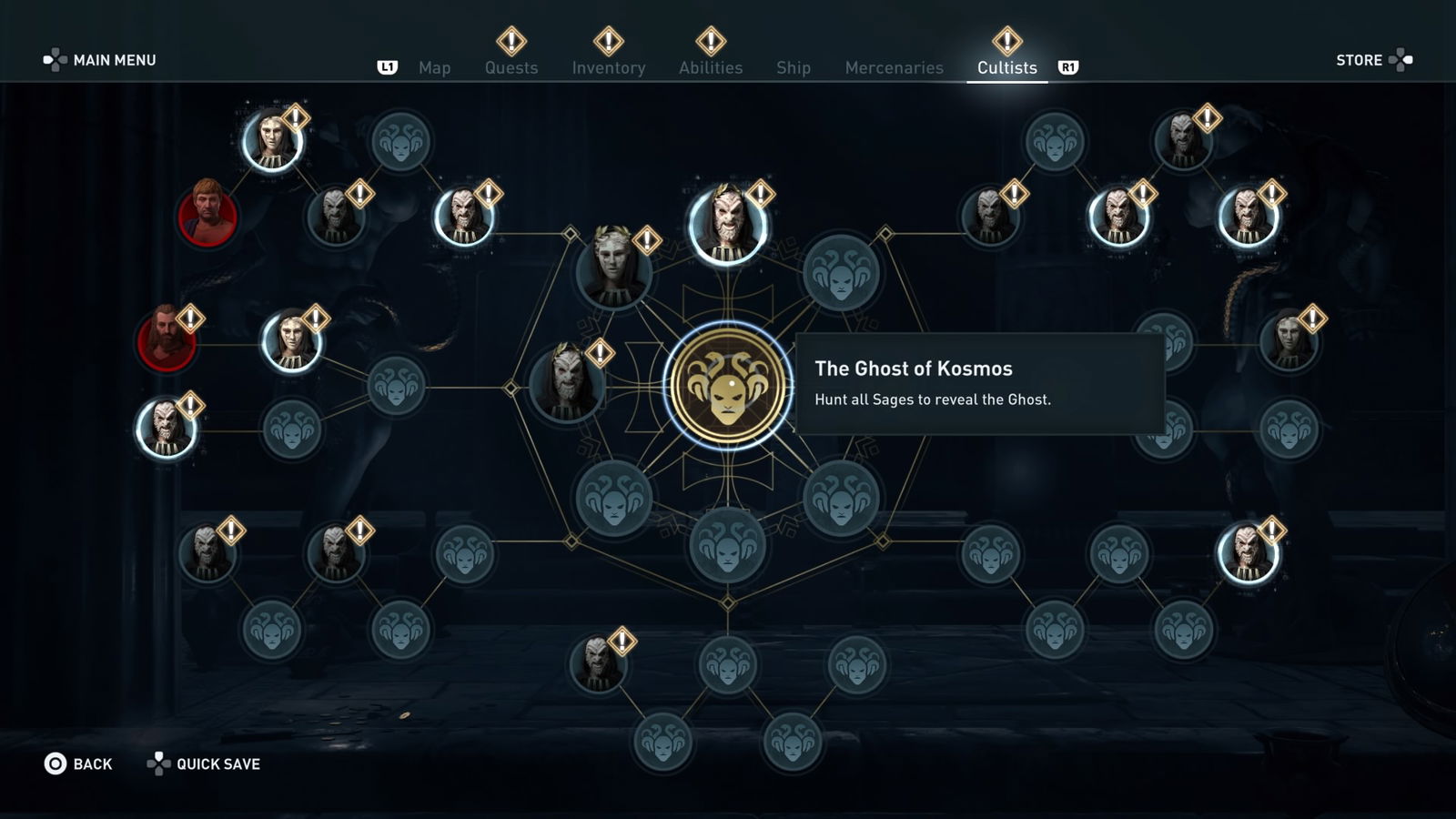Assassin’s Creed III Remastered launched two weeks ago, but after spending so much time with Assassin’s Creed Odyssey, I’m still on the fence about whether I should play Assassin’s Creed III again. They’re both Assassin’s Creed games, yet they’re fundamentally different from one another. I’ve been spending a lot of time with Odyssey lately to prepare for the upcoming DLC, and I’ve come to the realization that a lot of other fans of the series have come to as well: Assassin’s Creed ain’t what it used to be.
Now that’s not necessarily a bad thing. Assassin’s Creed Origins laid the groundwork for a more RPG style Assassin’s Creed, and Odyssey expanded upon that groundwork with flying colors, delivering one of the best western RPGs I’ve played in recent memory. While these Assassin’s Creed games are definitely good, it’s becoming harder and harder to view them as Assassin’s Creed games. Watching Kassandra stealthily work her way through an enemy encampment and then going back and watching Ezio stab a guard with his hidden blade is almost enough to convince someone that they’re different series entirely.
Even the narrative connections between the new Assassin’s Creed and the old Assassin’s Creed are becoming looser and looser. Origins got away with not relating too heavily to the Assassin Brotherhood because it was about the formation of the Assassin Brotherhood. Other than that, it was largely just an RPG set in ancient Egypt. Odyssey doesn’t even feature the titular Assassins, being set 400 years before Origins. Though Odyssey does feature some tidbits about the First Civilization and Isu Artifacts (which are the backbone of the overarching AC story), it’s still mostly a self-contained story. The modern-day segments last a whole thirty minutes across both games, although Ubisoft has been moving further away from them with each new entry, relegating them to comics and other tie-ins.
So the new games play differently and hardly connect to the overall Assassin’s Creed story. Why even call them Assassin’s Creed at this point? Well, that’s the tricky part, and there isn’t a completely definitive answer. Just how far can a series stray from its original vision without becoming a brand new series entirely? God of War, Resident Evil, Call of Duty, and countless other franchises have had entries that differ wildly from the others, and the discontent amongst fans changes depending on the franchise.
Even though Call of Duty: Black Ops III was set fifty years into the future (a far cry from World War 2 or even the modern-day entries), few were complaining that it wasn’t a true Call of Duty game. The newest God of War, on the other hand, received numerous complaints that the series had lost its way and wasn’t a real God of War game. Even a series like Resident Evil, which had undergone huge shifts in both tone and gameplay throughout the first six games, made fans skeptical of the seventh entry in the series when it was revealed to have a first-person perspective, something no other Resident Evil game had done prior.
The key to making drastic changes while still keeping fans happy is balance, which I feel Assassin’s Creed has done very well. Yes, the games are set in expansive open worlds with small towns rather than dense urban centers. Yes, the flashy counter-based combat has been swapped in favor of a more traditional action-RPG battle system. And yes, the assassination, the franchise’s namesake, has been deemphasized. However, Origins and Odyssey maintain the core of Assassin’s Creed while changing just about everything else, resulting in games that take the best parts of the older entries while modernizing and revamping the parts that were frustrating or aged poorly.
The cultist system in Odyssey is Assassin’s Creed in its purest form, providing players with a web of interconnected conspirators to take down. You have to uncover the targets’ true identities first though, and this is done through side quests that reward clues as to who the cultists are and where they’re located. Once you know who you’re after, you’re free to tackle the assassination in any way you see fit. The big assassination moments from the earlier games’ stories are traded in favor of more plentiful and flexible assassination scenarios. Origins and Odyssey still feature story-related setpiece assassinations, they’re just fewer and further in between.
Not only are you free to kill your targets however you wish, but you’re also able to tackle any situation in just about any way. Traditional Assassin’s Creed combat isn’t anything spectacular. It’s flashy, sure, but it really boils down to spamming counters with the occasional change in strategy for special enemies. Odyssey‘s combat is more skill-based, revolving around dodging, blocking, and smart use of abilities. In addition, the three main skill trees (hunter, warrior, and assassin) allow you to go all in on whichever style of play you prefer. If you only want to fight head-on, invest in the warrior tree. If you’d rather stealthily eliminate enemies one by one in traditional Assassin’s Creed fashion, put some points into the assassin tree. Maybe you like to fight from a distance, so you invest in the hunter tree. All three playstyles are equally viable, and the missions are designed in such a way that multiple approaches are possible.
Odyssey keeps the key parts of what makes Assassin’s Creed what it is, but it bends the rules to allow for more freedom and creativity. Another game that does this well is Rainbow Six Siege, which took a traditionally story-focused shooter and transformed it into a multiplayer-only team shooter. Siege definitely lacks the strong narrative and tight mission design that made the old Rainbow Six games so good, but the tense multiplayer matches keep the Rainbow Six spirit alive and well. Sending drones into rooms and coordinating an attack plan with friends is still 100% Rainbow Six, it’s just a different take on the series. Siege and Odyssey both succeed in changing up their respective formulas significantly while still keeping the souls of the series intact.
If series never underwent drastic changes, we wouldn’t have games like God of War, Breath of the Wild, or Assassin’s Creed Odyssey, and those are some really good games. Change ultimately drives the medium of video games forward, providing us with new and innovative experiences that we wouldn’t have gotten otherwise. Franchises evolve, and it’s important to not freak out when we see something we’re not used to. Of course, we should honor and remember what came before, but we need to keep an open mind, otherwise we’ll end up playing the same games year after year.
Even though Odyssey plays nothing like the older Assassin’s Creed games, it still feels like Assassin’s Creed, and that’s a successful revitalization in my eyes. I’m sure the Viking one is going to be even more different, and I’m super excited about that too.
You know, because Vikings.






